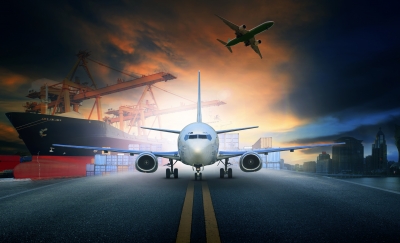

The Customs Modernization and Tariff Act (CMTA) is expected to be approved on second reading this week at the Lower House, according to Representative Romero Quimbo, chair of the Ways and Means committee tackling CMTA deliberations.
The Senate Committee on Ways and Means, on the other hand, is targeting approval of the bill on third and final reading by September 30.
The CMTA is a priority bill under the 16th Congress.
Over the weekend, the Joint Foreign Chambers (JFC) reiterated its recommendation to both houses of Congress to approve CMTA in order to modernize the Bureau of Customs (BOC) and keep up with changing international standards.
“This bill deserves urgent consideration by Congress in view of the need to create a Bureau of Customs that will be respected by all for its honesty and efficiency,” the JFC said in a statement.
“We are hopeful that the Congress will approve the CMTA this 16th Congress to continue the reform momentum since the 14th Congress.”
JFC noted that the Senate on February 1, 2010, during the 14th Congress, ratified the Revised Kyoto Convention (RKC) of the World Customs Organization, under which the Philippines committed to bring its customs procedures in line with the 78 other member countries that have ratified the RKC. A five-year period was targeted to bring Philippine domestic law into conformity with the RKC.
During the 15th Congress, the Lower House approved the CMTA, the enabling law of the RKC. Unfortunately, the Senate was unable to pass the measure.
“In today’s fast-changing global economy, the Philippines must modernize its customs administration to keep up with changing international standards, to make customs valuation and inspection procedures more transparent and predictable, and to implement automated procedures. The costs of the entire logistics chain which connects Philippine agriculture and industry to foreign markets must

be made as competitive as possible to support existing businesses in the Philippines as well as to attract new ones.
JFC noted that many of the individual reforms in the bill, when implemented, will reduce logistic chain costs and enhance the country’s competitiveness.
It added that the approval of the bill is essential so the country can take full advantage of new opportunities with the ASEAN Economic Community (AEC) coming into effect at the end of 2015.
One reform CMTA would bring about is the adjustment in the current de minimis of P10, under Republic Act 1937 and unchanged since 1957.
“At this absurdly low amount, the Philippine de minimus is the smallest in ASEAN, which averages almost US $200 or some 90 times the Philippine amount. Other ASEAN jurisdictions set this amount administratively–as the CMTA would allow–rather than by law,” JFC explained.
Aside from improving the Tariff and Customs Code of the Philippines (TCCP) by making it more adaptable to the demands of international trading through modernization, accessibility, and transparency, the bill is expected to contribute to ongoing structural reforms at the BOC, which JFC said it fully supports.
Moreover, JFC said the successful implementation of reforms will go a long way in addressing the perennial problem of smuggling which “contributes to major revenue losses for the Philippine government and deters the proliferation of legitimate businesses.”
“As the Philippines moves into the AEC and in the future expands its trade and investment treaties with the Asia-Pacific and European economies with the Trans-Pacific Partnership or an EU-Philippine FTA, the corrupt and inefficient Bureau of Customs of the past will become unacceptable to the country’s regional as well as global trading partners,” JFC said.
The JFC is a coalition of the American, Australian- New Zealand, Canadian, European, Japanese, Korean chambers and Philippine Association of Multinational Companies Regional Headquarters, Inc.
Image courtesy of khunaspix at FreeDigitalPhotos.net




